★★★
“Punches below its weight.”
 This film is based on a Korean webcomic, but has been relocated to Japan. I can’t help wondering if something was lost in the process, because it feels like I should have liked this more than I did. Ran Tachibana (Miyoshi) is a promising amateur boxer, who gets devastating news when the body of her sister Yuzuki is found inside a burned-out vehicle. The cops call it suicide and quickly close the case. Except Ran doesn’t believe the corpse is Yuzuki, and begins to investigate what might have happened. The search leads her to an underground fight club run by the brutal Nikaido (Ito), who is holding Yuzuki hostage. He makes Ran an offer: beat his undefeated champion, and he’ll let Yuzuki go.
This film is based on a Korean webcomic, but has been relocated to Japan. I can’t help wondering if something was lost in the process, because it feels like I should have liked this more than I did. Ran Tachibana (Miyoshi) is a promising amateur boxer, who gets devastating news when the body of her sister Yuzuki is found inside a burned-out vehicle. The cops call it suicide and quickly close the case. Except Ran doesn’t believe the corpse is Yuzuki, and begins to investigate what might have happened. The search leads her to an underground fight club run by the brutal Nikaido (Ito), who is holding Yuzuki hostage. He makes Ran an offer: beat his undefeated champion, and he’ll let Yuzuki go.
Naturally, it’s not as simple as that, with Nikaido reneging on his word. Fortunately, Ran has help in the shape of bike mechanic Kamiya (Maeda) and hacker Naruse (Hosoda), who help her go after Nikaido and take down his operation. There’s also concerns on the criminal side, with Nikaido’s bosses feeling he’s a loose cannon. It all feels too much to cram into a single movie, and I suspect it might have been better served in the form of a TV series. As is, elements like Yuzuki’s “magic blood” don’t appear to have much purpose. They seem there purely so fans of the comic will go “Oh, yeah!” and make little or no sense to casual viewers like me.
I think it’s probably a case whee less would have been more in terms of plotting. Keep it simple, perhaps removing side characters like Kamiya or Naurse, and focus just on Ran infiltrating the fight club and working her way up through it. Sure, it wouldn’t score points for originality, but it might have sustained my attention better. As is, in between the action, I must confess this sometimes struggled to retain focus. Considering the obviously non-trivial amount of resources that went into the production, it’s a shame they didn’t put as much effort into the story. For this undeniably looks spiffy, with the underground arena, in the shape of an eye, well-designed, and I liked the over-perky pair of MCs as well.
But I’m here for the fights, and these were… decent enough. I appreciated that the film acknowledged the heroine’s lack of size, and explicitly discussed how she would need to use her speed and agility to beat larger opponents. That’s true, even with the equalizer of knuckle-dusters, given to her by Nikaido to even up the betting odds a little. Miyoshi only had a few months training, but it’s likely easier to train an actress to fake fight, than a fighter to fake act, and it’s adequately convincing. But there are really only three or four sequences in the whole thing, with the story having to rush past most of them, because it has to deal with all the other elements. It’s all okay, I suppose, yet definitely feels like a wasted opportunity.
Dir: Hong-Seung Yoon
Star: Ayaka Miyoshi, Gôki Maeda, Hideaki Ito, Kanata Hosoda





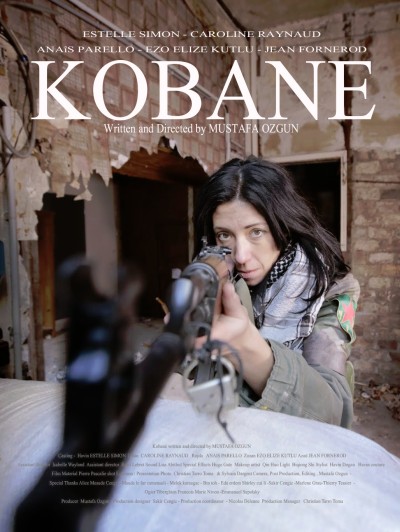 Yes, let’s get the obligatory Kurt Cobain joke out of the way quickly and painlessly. This is instead about the Kurdish city, located in northern Syria, which came under assault from forces belonging to the Islamic State (ISIS) in 2014-15. The defenders eventually repelled the attack in what has been called the Kurdish version of the Battle of Stalingrad. Even before that, we had
Yes, let’s get the obligatory Kurt Cobain joke out of the way quickly and painlessly. This is instead about the Kurdish city, located in northern Syria, which came under assault from forces belonging to the Islamic State (ISIS) in 2014-15. The defenders eventually repelled the attack in what has been called the Kurdish version of the Battle of Stalingrad. Even before that, we had 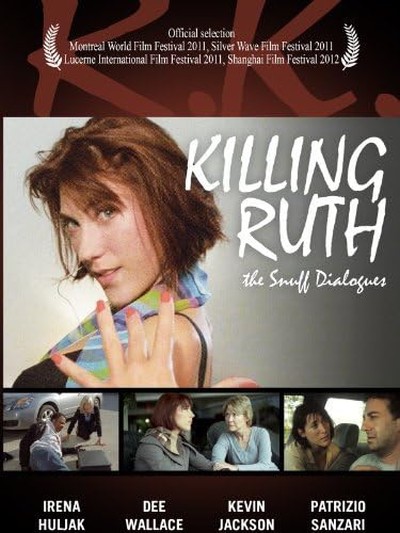 As soon as I saw the running time of this was one hundred and thirty-one minutes, it immediately went onto the back-burner. I have a busy life, and I’ve going to devote close to two and a quarter hours to a low-budget movie, it is going to be when I have a
As soon as I saw the running time of this was one hundred and thirty-one minutes, it immediately went onto the back-burner. I have a busy life, and I’ve going to devote close to two and a quarter hours to a low-budget movie, it is going to be when I have a 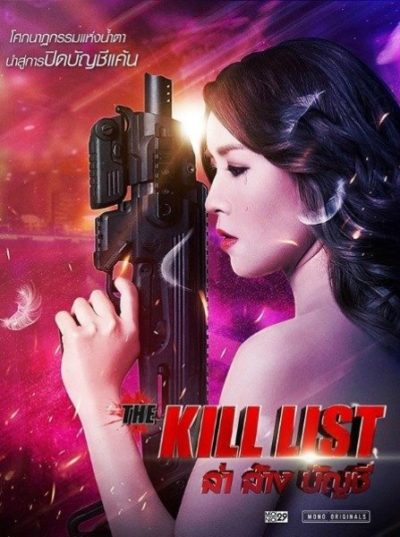 For a TV movie, this is very impressive. When you hear that phrase, I usually think of something which appears on Lifetime or, worse still, Hallmark. But it seems that Thai television is made of sterner stuff. This plays much tougher, more like something you might see on AMC or FX. The story may not be particularly original, but it’s done with enough style and energy to make for more than passable entertainment The heroine is Angie (Rittapinun), an orphan who was brought up by her uncle and trained as an assassin. Her latest mission involves the retrieval of a data chip which contains a list of all the members in the organization of which she’s part. In the wrong hands, it could be disastrous.
For a TV movie, this is very impressive. When you hear that phrase, I usually think of something which appears on Lifetime or, worse still, Hallmark. But it seems that Thai television is made of sterner stuff. This plays much tougher, more like something you might see on AMC or FX. The story may not be particularly original, but it’s done with enough style and energy to make for more than passable entertainment The heroine is Angie (Rittapinun), an orphan who was brought up by her uncle and trained as an assassin. Her latest mission involves the retrieval of a data chip which contains a list of all the members in the organization of which she’s part. In the wrong hands, it could be disastrous.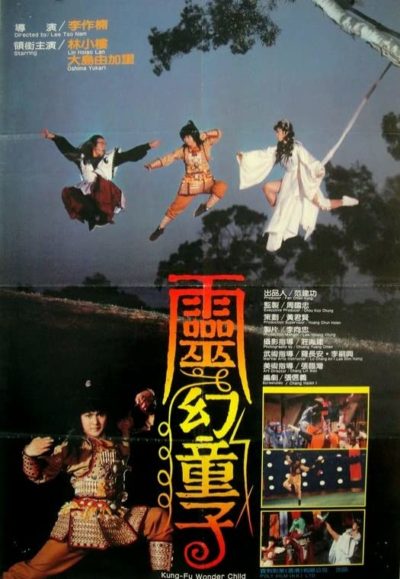 You may have noticed that I’ve been on a bit of a spree with these Taiwanese fantasy-fu flicks of late. However, I think I’m feeling a bit sated with them at this point, and the law of diminishing returns seems to be setting in. There are only so many unconvincing male impersonators, bad effects (both optical and practical) and almost illegible and/or illiterate subtitles a man can take, and I think I’ve reached my capacity in almost of these categories. Fortunately, my queue of such things seems to be nearing an end, with just a couple more to go. Still, after this delirious experience, I feel in need of a week or two’s break from the madness.
You may have noticed that I’ve been on a bit of a spree with these Taiwanese fantasy-fu flicks of late. However, I think I’m feeling a bit sated with them at this point, and the law of diminishing returns seems to be setting in. There are only so many unconvincing male impersonators, bad effects (both optical and practical) and almost illegible and/or illiterate subtitles a man can take, and I think I’ve reached my capacity in almost of these categories. Fortunately, my queue of such things seems to be nearing an end, with just a couple more to go. Still, after this delirious experience, I feel in need of a week or two’s break from the madness.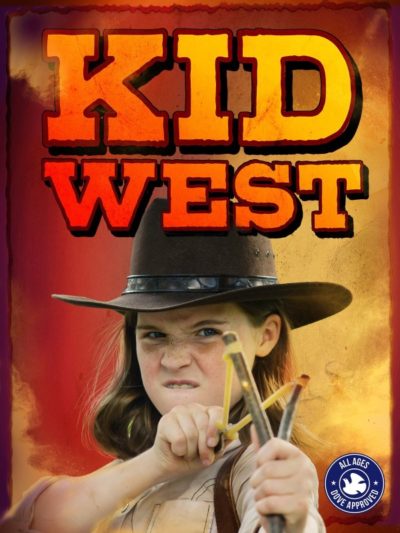 I’ve mentioned before the general lack of action-heroine films for the pre-teenage crowd:
I’ve mentioned before the general lack of action-heroine films for the pre-teenage crowd: 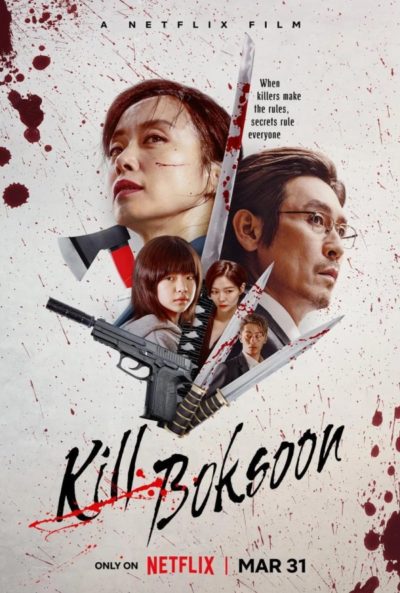 There’s a lot to admire about this South Korean film, though a couple of fumbles stop it from achieving the heights it threatens to do. You’d be forgiven for thinking it’s a knock-off of Kill Bill going by the title. But it’s as much a pun on the name of the heroine, Gil Bok-soon (Jeon). She has been an assassin since she was 17, and has worked her way up to be the top employee of the MK. ENT corporation, run by Cha Min-kyu (Sol). They are one of a number of competing companies offering killers for hire, but to ensure standards, certain common rules have been agreed, e.g. no kids, and are adhered to by all. Well… Kinda…
There’s a lot to admire about this South Korean film, though a couple of fumbles stop it from achieving the heights it threatens to do. You’d be forgiven for thinking it’s a knock-off of Kill Bill going by the title. But it’s as much a pun on the name of the heroine, Gil Bok-soon (Jeon). She has been an assassin since she was 17, and has worked her way up to be the top employee of the MK. ENT corporation, run by Cha Min-kyu (Sol). They are one of a number of competing companies offering killers for hire, but to ensure standards, certain common rules have been agreed, e.g. no kids, and are adhered to by all. Well… Kinda…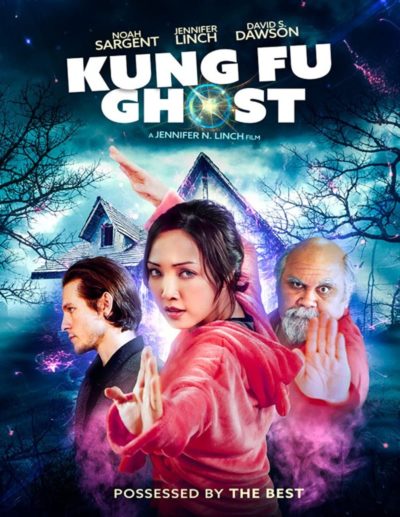 This is another example of someone simply trying to do too much on their movie. For Linch not only starred in, produced and directed this, she also edited it, did the sound design and was the colourist. It’s not hard to predict her talents are not equally divided. It’s a shame, since I really wanted to enjoy this: much like its heroine, there’s a plucky, can-do attitude present, which can only be admired. Unfortunately, anyone above the age of eight is going to be quite hard-pushed to overlook the flaws. While the action is not especially one of those, the volume there is underwhelming, and the romantic, comedic and dramatic elements are hugely variable, to put it politely.
This is another example of someone simply trying to do too much on their movie. For Linch not only starred in, produced and directed this, she also edited it, did the sound design and was the colourist. It’s not hard to predict her talents are not equally divided. It’s a shame, since I really wanted to enjoy this: much like its heroine, there’s a plucky, can-do attitude present, which can only be admired. Unfortunately, anyone above the age of eight is going to be quite hard-pushed to overlook the flaws. While the action is not especially one of those, the volume there is underwhelming, and the romantic, comedic and dramatic elements are hugely variable, to put it politely.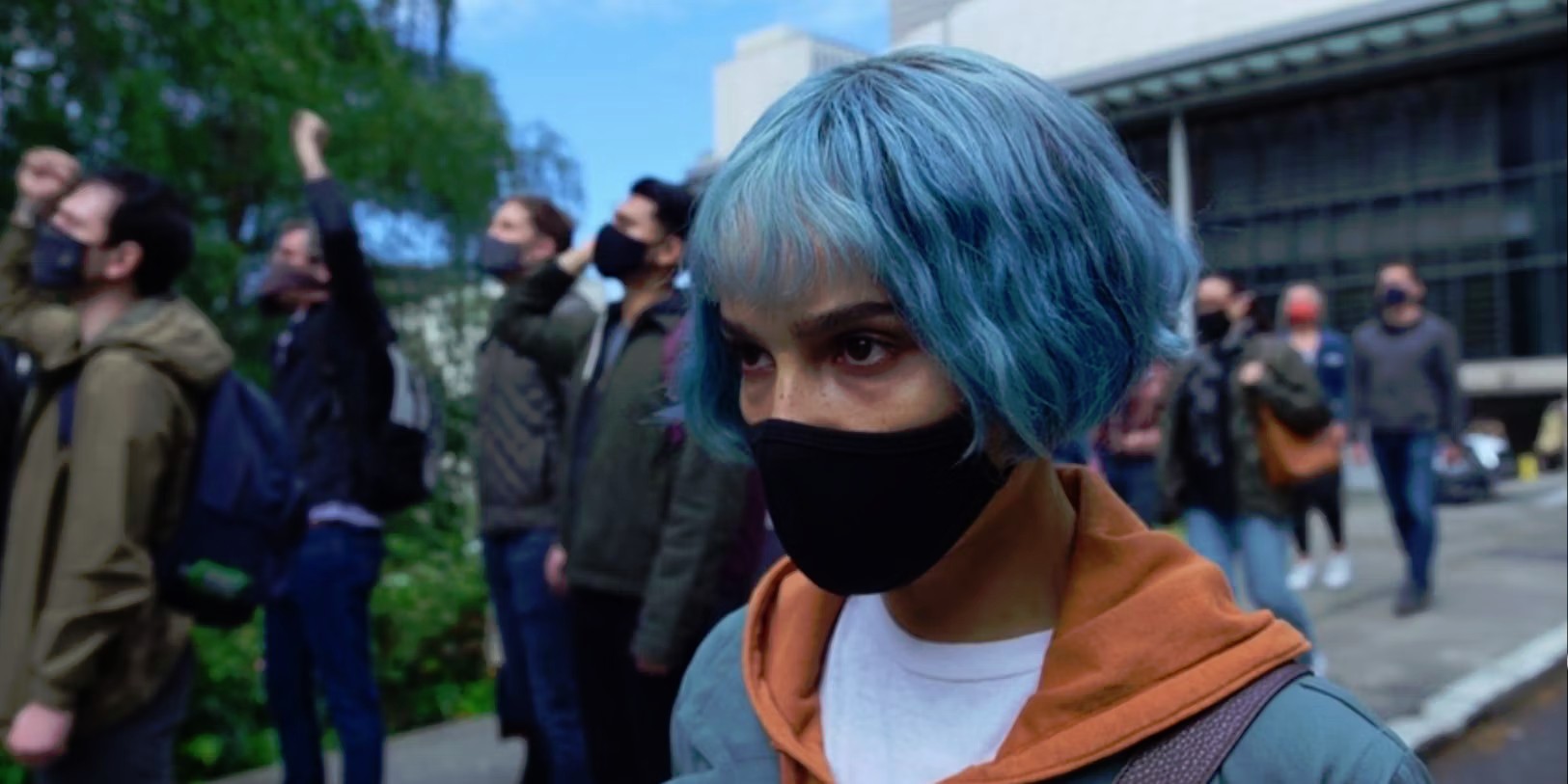 ★★★
★★★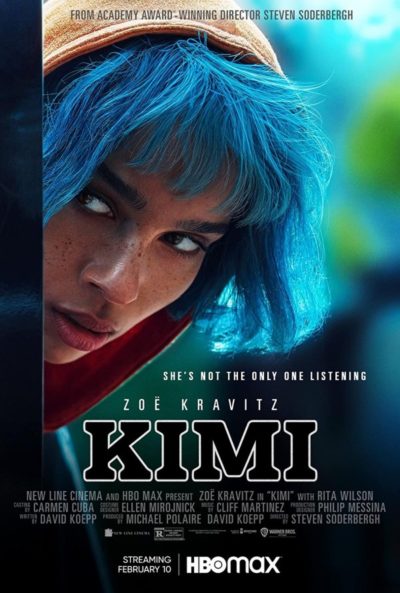 Kimi indirectly discusses this attitude, but also seems to make a clear point that there is a need to leave your own four walls sometimes, because not everything can be handled from your laptop. That said, it’s quite disturbing how much
Kimi indirectly discusses this attitude, but also seems to make a clear point that there is a need to leave your own four walls sometimes, because not everything can be handled from your laptop. That said, it’s quite disturbing how much 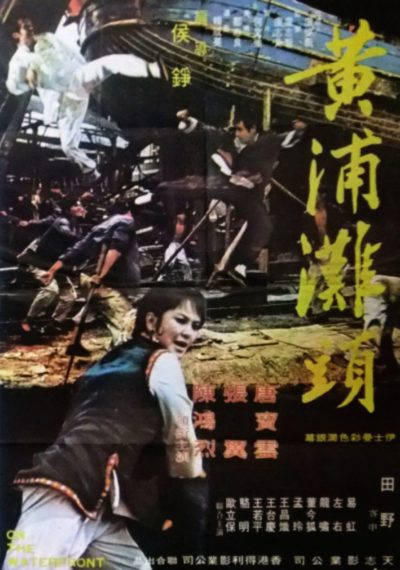 Yeah, I think if I’d seen this under the alternate title of On the Waterfront, I might well have passed it by. Though that is probably a slightly more accurate description of the contents here, even allowing for the complete absence of Marlon Brando. [At least we didn’t have to deal with the expectations set by the Italian title, which translates as “The merciless hand of Bruce Lee strikes again”!] It takes place around the Whampoa wharves in Shanghai, where various crime families are jostling for position and control, with varying degrees of morality e.g. whether or not they approve of drugs and/or sex trafficking as a means to make money. Particularly of note here are Red Rose (Tang) and Zhou (Chang), who eventually end up allies against their common enemy (Chen).
Yeah, I think if I’d seen this under the alternate title of On the Waterfront, I might well have passed it by. Though that is probably a slightly more accurate description of the contents here, even allowing for the complete absence of Marlon Brando. [At least we didn’t have to deal with the expectations set by the Italian title, which translates as “The merciless hand of Bruce Lee strikes again”!] It takes place around the Whampoa wharves in Shanghai, where various crime families are jostling for position and control, with varying degrees of morality e.g. whether or not they approve of drugs and/or sex trafficking as a means to make money. Particularly of note here are Red Rose (Tang) and Zhou (Chang), who eventually end up allies against their common enemy (Chen).